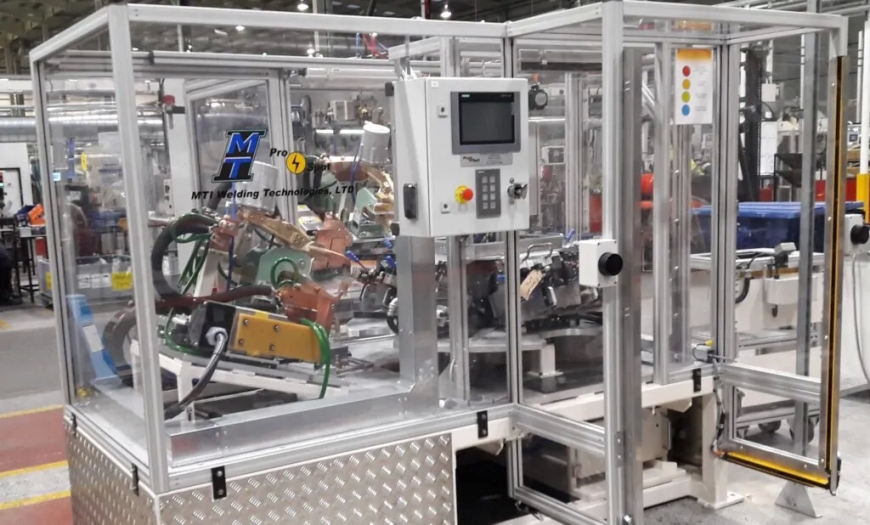How to Choose the Right Special Purpose Machinery for Your Business

Special purpose machinery plays a pivotal role in enhancing efficiency, productivity, and competitiveness across various industries. Whether you're in manufacturing, agriculture, healthcare, or another specialized sector, selecting the right machinery can significantly impact your business's success. In this guide, we'll explore key considerations and best practices to help you make informed decisions when choosing special purpose machinery tailored to your business needs.
Understanding Your Operational Needs
The first step in selecting the right special purpose machinery is to thoroughly understand your operational requirements. Identify the specific tasks or processes that need automation or enhancement. For example, in manufacturing, you might need machinery that improves precision in assembly or increases production throughput. In agriculture, you might require specialized equipment for planting, harvesting, or processing crops. This clarity is crucial as it sets the foundation for evaluating potential machinery solutions.
Conducting a Comprehensive Needs Assessment
Once you've identified your operational needs, conduct a comprehensive needs assessment. This involves evaluating factors such as production volume, required accuracy or speed, environmental conditions, and safety considerations. Engage with key stakeholders, including operators, engineers, and maintenance personnel, to gather insights into their requirements and challenges. This holistic approach ensures that the machinery you choose aligns closely with your business objectives and operational realities.
Considering Customization and Flexibility
Special purpose machinery often needs to be customized to meet specific operational requirements effectively. Off-the-shelf solutions may not always offer the flexibility needed to address unique challenges or adapt to future changes in your business environment. Look for machinery suppliers who are willing to customize their products or develop bespoke solutions tailored to your exact specifications. This ensures that the machinery integrates seamlessly into your existing workflow and maximizes its utility over the long term.
Evaluating Technology and Innovation
Technology plays a pivotal role in the performance and capabilities of special purpose machinery. Stay abreast of technological advancements relevant to your industry, such as automation, robotics, IoT (Internet of Things), and AI (Artificial Intelligence). These innovations can enhance productivity, improve precision, and reduce operational costs. Assess whether potential machinery suppliers incorporate state-of-the-art technology into their products and how these technologies can benefit your business operations.
Assessing Reliability and Durability
Reliability and durability are critical considerations when choosing special purpose machinery. These machines often operate under demanding conditions and are expected to perform consistently over extended periods. Evaluate the build quality, materials used, and track record of reliability for each machinery option. Look for suppliers with a reputation for producing robust and durable equipment backed by comprehensive warranty and support services. This ensures minimal downtime and maximum operational efficiency for your business.
Ensuring Safety and Compliance
Safety should always be a top priority when selecting machinery, especially for specialized applications that may involve hazardous materials or processes. Ensure that the machinery complies with industry safety standards and regulations relevant to your business. Look for features such as emergency stop mechanisms, protective guards, ergonomic design, and intuitive user interfaces that prioritize the safety of operators and maintenance personnel. Compliance with safety standards not only mitigates risks but also enhances workplace efficiency and morale.
Calculating Total Cost of Ownership (TCO)
When evaluating machinery options, consider the total cost of ownership (TCO) rather than just the initial purchase price. TCO includes factors such as maintenance and repair costs, energy consumption, training expenses, and potential downtime due to maintenance or malfunction. Opt for machinery that offers a favorable TCO over its lifespan, taking into account operational efficiency, reliability, and longevity. A comprehensive TCO analysis helps in making informed financial decisions that align with your business's budget and long-term sustainability goals.
Seeking Supplier Support and Service
Choose machinery suppliers who offer comprehensive support and service throughout the machinery's lifecycle. This includes installation, training, preventive maintenance programs, technical support, and access to spare parts. Supplier reliability and responsiveness are crucial, as they ensure timely assistance in case of issues or downtime. Establish clear communication channels with suppliers and inquire about their service commitments, response times, and customer satisfaction track record before making a purchase decision.
Future-Proofing Your Investment
Anticipate future needs and technological advancements when selecting special purpose machinery. Choose suppliers who demonstrate a commitment to innovation and adaptability, ensuring that their products can evolve alongside your business. Consider scalability options and the potential for integrating additional features or upgrades as your operational requirements expand or change. Future-proofing your investment in machinery helps in maintaining competitiveness and operational excellence in a rapidly evolving business environment.
Conclusion
Choosing the right special purpose machinery for your business requires careful consideration of operational needs, technological capabilities, reliability, safety, and long-term costs. By following these best practices and conducting a thorough evaluation of potential machinery options, you can make informed decisions that enhance productivity, efficiency, and profitability. Remember to prioritize customization, reliability, and supplier support to maximize the benefits of your investment in specialized machinery.
In conclusion, selecting special purpose machinery is not just about acquiring equipment—it's about strategically investing in tools that optimize your business operations and position your organization for sustained growth and success in the competitive marketplace. With a clear understanding of your needs and a diligent evaluation process, you can confidently choose machinery that aligns with your business goals and delivers tangible value over time.
What's Your Reaction?




















